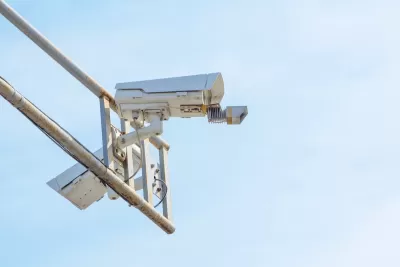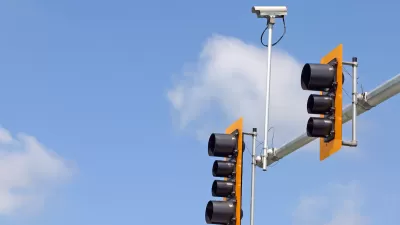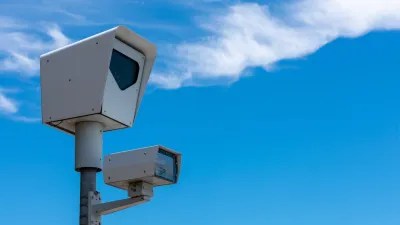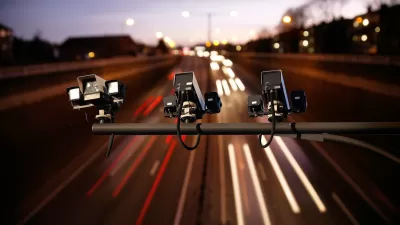The Iowa Department of Transportation has rejected a majority of applications to continue speed camera programs in cities across the state based on a new state law that requires state-issued permits for automated traffic enforcement.

Iowa communities will now have to apply for a permit from the state’s Department of Transportation to operate traffic cameras per a new state law, reports Katarina Sostaric for Iowa Public Radio.
“Cities and counties have to prove to the state that their traffic cameras that automatically issue speeding tickets are appropriate, necessary and the least restrictive way to address traffic safety at those locations,” Sostaric adds.
Of 348 requests to use traffic cameras across the state, 154 were approved at both fixed and mobile locations. Just 11 of 139 requests for fixed cameras were approved to continue operating. “Eighteen of the 28 communities that applied for a permit were fully denied. Only one city — Fort Dodge — had all of its cameras approved. Nine cities total got to keep some of their cameras.”
Prairie City Mayor Chad Alleger said he doesn’t understand the state’s decision to deny speed cameras to his city, saying, “We have the data to show that we have reduced speed out on [highway] 163 and in front of the school. So I don’t understand the explanation of ‘not necessary,’ because it proves that it is working.” The mayor pointed out that the city uses revenue from traffic camera citations to fund special projects such as a new library and firefighting facilities.
The new law requires posted signs notifying drivers of cameras and prohibits issuing tickets for drivers going less than ten miles over the speed limit.
FULL STORY: Most of Iowa’s fixed traffic cameras must be turned off as DOT implements new law

Alabama: Trump Terminates Settlements for Black Communities Harmed By Raw Sewage
Trump deemed the landmark civil rights agreement “illegal DEI and environmental justice policy.”

Study: Maui’s Plan to Convert Vacation Rentals to Long-Term Housing Could Cause Nearly $1 Billion Economic Loss
The plan would reduce visitor accommodation by 25% resulting in 1,900 jobs lost.

Planetizen Federal Action Tracker
A weekly monitor of how Trump’s orders and actions are impacting planners and planning in America.

Wind Energy on the Rise Despite Federal Policy Reversal
The Trump administration is revoking federal support for renewable energy, but demand for new projects continues unabated.

Passengers Flock to Caltrain After Electrification
The new electric trains are running faster and more reliably, leading to strong ridership growth on the Bay Area rail system.

Texas Churches Rally Behind ‘Yes in God’s Back Yard’ Legislation
Religious leaders want the state to reduce zoning regulations to streamline leasing church-owned land to housing developers.
Urban Design for Planners 1: Software Tools
This six-course series explores essential urban design concepts using open source software and equips planners with the tools they need to participate fully in the urban design process.
Planning for Universal Design
Learn the tools for implementing Universal Design in planning regulations.
Caltrans
Smith Gee Studio
Institute for Housing and Urban Development Studies (IHS)
City of Grandview
Harvard GSD Executive Education
Toledo-Lucas County Plan Commissions
Salt Lake City
NYU Wagner Graduate School of Public Service





























